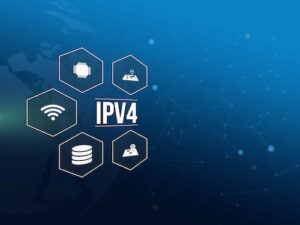Key points:
- Universities could have an unexpected income stream right before their very eyes--their stores of IPv4 addresses
- Businesses have created ongoing demand for IPv4 addresses from their growing networks
- See related article: 5 essential edtech strategies for 2023-2024
In recent years, universities have faced a perfect storm of factors that have contributed to an educational financial crisis. The cost of delivering high-quality higher education has skyrocketed, while public funding has declined. At the same time, the global pandemic, the rise of online learning, the cost of tuition, and declining enrollment have reduced other income streams. However, many universities are sitting on a hidden fortune--their valuable troves of IPv4 addresses--that could bring a much-needed boost to their coffers.
More News from eCampus News
Report: AI skills are critical for learners and workers
AI skills are becoming essential for college students to secure future success. As artificial intelligence transforms industries, the ability to understand and effectively use AI will be a key differentiator in the job market.
Harvard’s stand against federal overreach: A defining moment for U.S. higher education
In a historic and deeply concerning move, the Trump administration has frozen over $2.2 billion in grants and contracts to Harvard University after the institution refused to comply with an extensive list of federal demands.
The human edge in the AI era
In the Future of Jobs 2025 report, the World Economic Forum predicts that 60 percent of jobs will require upskilling or retraining, or they’ll be threatened. The skills we have today may not keep us secure for long.
Migrating from on-prem mailboxes to the cloud in higher education
As higher education continues its digital evolution, more colleges and universities are turning to cloud-based applications. These modern solutions offer advantages that on-premise systems can’t match.
Students are unsure about higher ed’s value, but strongly support AI
American students are questioning whether higher education is the path to a successful career–but it remains evident that students believe AI is beneficial to learning.
Data shows growing GenAI adoption in higher ed
Nearly half of HED instructors (45 percent) have positive perceptions about GenAI, despite concerns and perceived risks in its adoption, according to updated data from Cengage Group’s “AI in Education” research series.
College claim to deliver value, but struggle to track its delivery
Although nearly 75 percent of colleges and universities believe their value proposition is clear, less than 10 percent of schools say they have built a reliable tracking process to ensure their perceived value is actually delivered.
Academic freedom under siege: A Ph.D. student’s reflections
As a doctoral student currently engaged in scholarly research within a U.S. higher education institution, I find myself increasingly alarmed by recent developments that suggest an erosion of academic freedom and civil liberties.
4 student mindsets that rationalize cheating
Understanding how students justify cheating can help faculty address the root causes. This article covers common student mindsets that rationalize cheating and offers practical ways to address them before they grow into a cheating culture.
The hidden cost of legacy systems in higher ed
As universities shape the future and prepare the next generation of leaders and innovators, it’s more important than ever to lead in adopting cutting-edge technology and digital transformation.










